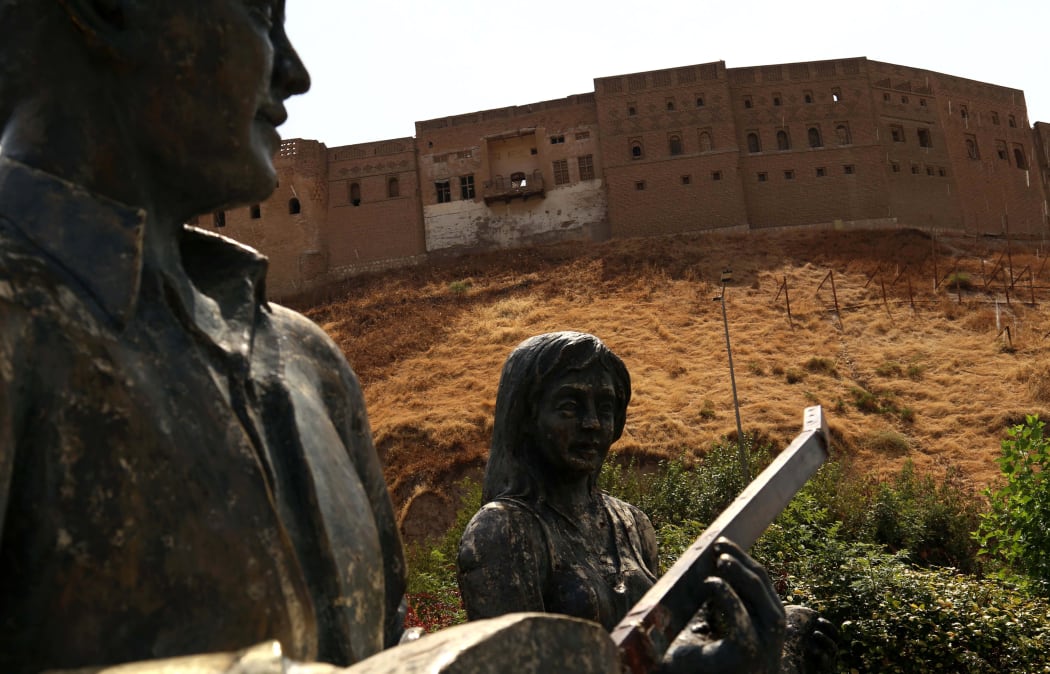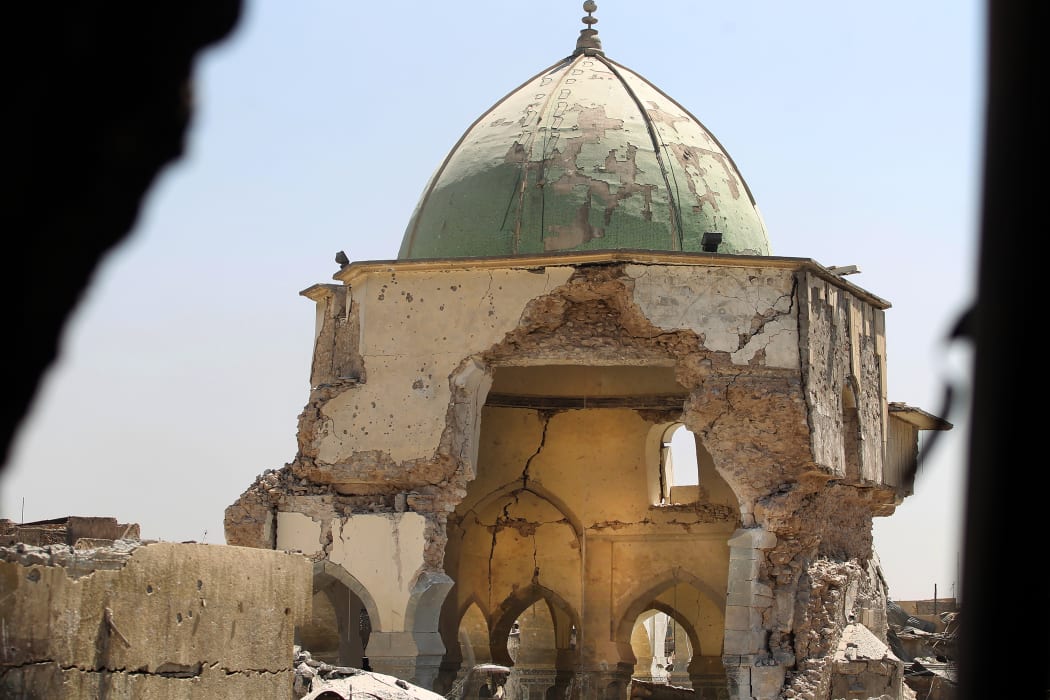Many of Iraq's cities have stood for thousands of years but the centre of its second largest city Mosul was destroyed in three.
Patrick Cockburn, the Middle East correspondent for The Independent, was one of the first journalists to document the rise of Islamic State, whose Mosul brigade was defeated in June.

Erbil Photo: AFP / FILE
Cockburn has been writing about the region since 1979 and spoke to Wallace from the ancient Iraqi city of Erbil, about 350 kilometres north of Baghdad.
Erbil has been continuously inhabited since around 6000BC and was largely untouched by the wider conflict in modern Iraq for a long time.
Mosul, where ISIS declared a global caliphate in 2014, lies 100km to the west of Erbil and its centre was all but destroyed after three years of brutal conflict.
''In the very centre you see nothing but destruction. The old city which has been there for thousands of years is mostly destroyed by air strikes, by artillery.''
ISIS have been defeated in Mosul and the bloody battle hailed as a victory for the Iraqi armed forces.
But they haven't gone away.
''This is a big victory.
''Now there's a footnote to this. ISIS isn't entirely out of business. They fought very hard for Mosul.
''The Americans thought the siege would last about two months, in fact it lasted nine months, that's longer than the battle of Stalingrad.
''One shouldn't mask the fact that the Iraqi government has won a sort of epic victory.''
Most of the two million inhabitants were gone and there had been ''a gigantic cost in loss of life, a gigantic cost in human misery''.
ISIS, unfortunately, were experts at holding urban territory, he said. ISIS sniper teams cut holes in walls and cellars to move between buildings.

A picture taken on 29 June, 2017, shows the destroyed Great Mosque of al-Nuri in Mosul - destroyed by militants in the clash between Iraq and Islamic State. Photo: AFP
''They have a cult that you show your devotion to the faith by fighting and dying fighting the enemy. This is a justification for the suicide bombings, which they carry out on an industrial scale.
''They ruled the caliphate with a core of fanatical supporters.''
On reporting in a high-risk zone, Cockburn said it was difficult because it wasn't possible to interview ISIS members in person.
A lot of reporting was second hand, talking to people who left ISIS strongholds like Mosul.
On the future of the Middle East, he said the crises in the region tended to make each other insoluble.
''In a place like Syria you know you have a government against an uprising maybe in the beginning but you have Sunni Arabs against the other sects. You have Kurd against Arab. Then you have their outside sponsors...big power sponsors like Russia and the US.
''All these things come together. One guy compared Syrian politics to...being like three-dimensional chess played by nine players with no known rules.
''That's why it's so difficult to resolve.''

